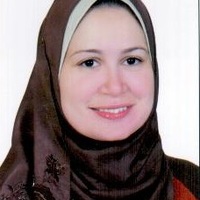
Omneya Attallah
Summary
Professor Omneya Attallah obtained her Ph.D. from Aston University in Birmingham, United Kingdom, in the field of Electrical and Electronic Engineering. Her doctoral research focused on innovating an intelligent tool to predict the risks of surgical re-intervention after vascular repair operations. This distinguished experience paved the way for Dr. Omneya to achieve a career full of accomplishments in the fields of artificial intelligence and healthcare.
One of Dr. Omneya's most significant achievements in international scientific research is her recognition as one of the top 2% of the world scientists according to Stanford University's prestigious list in 2022 and 2023, solidifying her reputation as a leading researcher in her field. Her research contributions position her among the most cited scholars in her specialized domain. She also received the 2023 Bioinformatics Sciences Award in recognition of her contributions to the fields of artificial intelligence and biological sciences. Dr. Omneya's research focused on developing intelligent tools to improve medical diagnosis and prognosis and using sensors and biosensors to enable long-term patient monitoring and remote rehabilitation. She also worked on developing assistive tools to improve the quality of life for people with disabilities and manage stress.
Dr. Omneya's efforts were not limited to scientific research alone but extended to supporting diversity and inclusion in science. She participated in several initiatives to promote women's participation in STEM fields. She is a senior member of the Institute of Electrical and Electronics Engineers (IEEE), a member of Sigma Xi, a member of the Association for Computing Machinery (ACM), as well as a member of the Organization for Women in Science for the Developing World (OWSD). Additionally, she is a research mentor at Neuromatch Academy and Egypt Scholars Foundation and has supervised many student research projects. She is also a founding member of the Wearables, Biosensing, and Biosignal Processing Laboratory (WeBios) at the Arab Academy for Science, Technology, and Maritime Transport (AASTMT).
Dr. Omneya continues her professional career as an editor for several prestigious journals and a member of technical committees for numerous international conferences. She has won several awards, including the best paper award at the ACM ICICM 2022 conference, travel awards from IEEE and the Association for Women in Computing, several as well as multiple research awards from the Arab Academy for Science, Technology and Maritime Transport (AASTMT). Furthermore, she actively led and contributed to numerous research projects, serving as the principal investigator, co-principal investigator, or senior researcher.